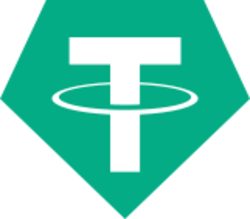Robert Kiyosaki: Unveiling the Mindset Behind Financial Empowerment
In the realm of personal finance and wealth creation, few figures have left as indelible a mark as Robert Kiyosaki. Best known for his groundbreaking book "Rich Dad Poor Dad," Kiyosaki has become a renowned advocate for financial education and empowerment. Through his books, seminars, and various media appearances, he has inspired countless individuals to rethink their approach to money, investing, and achieving financial independence.
Early Life and Influences
Robert Toru Kiyosaki was born on April 8, 1947, in Hilo, Hawaii. His parents were educators, and he grew up in a middle-class household. From an early age, Kiyosaki exhibited a curiosity about money and a desire to understand how it works. His upbringing exposed him to contrasting perspectives on finances – his biological father, who he refers to as "Poor Dad," had a stable job but a conventional outlook on money, while his best friend's father, his "Rich Dad," was an entrepreneur who imparted unconventional yet insightful financial wisdom.

The "Rich Dad Poor Dad" Philosophy
Kiyosaki's most well-known work, "Rich Dad Poor Dad," was published in 1997 and has since sold millions of copies worldwide. The book challenges conventional beliefs about money, focusing on the importance of financial education, investing, and developing an entrepreneurial mindset.
The central tenets of the "Rich Dad Poor Dad" philosophy include:
1. Assets vs. Liabilities: Kiyosaki emphasizes the distinction between assets and liabilities. He advises that true wealth is built by accumulating income-generating assets, such as real estate, stocks, and businesses, while minimizing liabilities.
2. The Importance of Financial Education: Kiyosaki highlights the lack of formal financial education in traditional schooling and stresses the need for individuals to take control of their financial education. He advocates learning about money, investing, and business to make informed decisions.
3. The Power of Entrepreneurship: The book encourages readers to think like entrepreneurs and embrace calculated risks. Kiyosaki suggests that having a mindset focused on creating value and solving problems is key to achieving financial success.
4. Embracing Failure and Learning: Kiyosaki believes that failure is an integral part of the learning process. He advocates taking risks, learning from mistakes, and persisting despite setbacks.

Critics and Controversies
While Kiyosaki's teachings have resonated with many, he has also faced criticism and controversy. Some financial experts and educators have criticized his advice for being overly simplistic, emphasizing risky investments, and downplaying the significance of traditional education and stable employment.
Kiyosaki's real estate investments and business ventures have also faced challenges. In 2012, he filed for bankruptcy protection for one of his companies, Rich Global LLC, in the wake of a legal dispute.
Conclusion
Robert Kiyosaki's impact on personal finance education cannot be understated. Through his books, seminars, and various media platforms, he has sparked conversations about financial literacy, entrepreneurship, and achieving financial freedom. While his teachings have garnered both praise and criticism, there's no denying that he has encouraged countless individuals to rethink their financial beliefs and take proactive steps toward a more empowered financial future. Whether you embrace his philosophy entirely or view it as a stepping stone to your own financial journey, Robert Kiyosaki's contributions to the world of personal finance are undeniably noteworthy.
The best foreign digital currency signals and forex signals have been collected for you with coverage of over 180 channels of digital currency signals in AsiaSignal.

















Comments